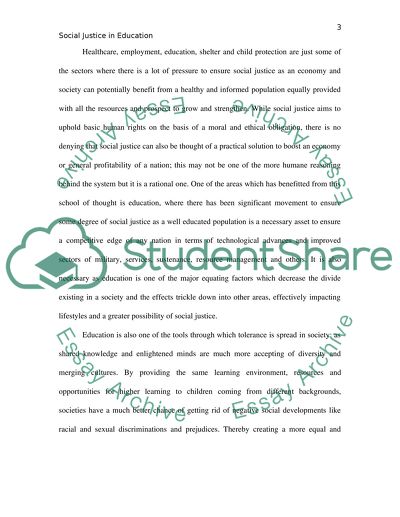Cite this document
(“The Importance of Social Justice in Education Essay”, n.d.)
Retrieved from https://studentshare.org/education/1454803-what-is-social-justice-and-why-does-it-matter-in
Retrieved from https://studentshare.org/education/1454803-what-is-social-justice-and-why-does-it-matter-in
(The Importance of Social Justice in Education Essay)
https://studentshare.org/education/1454803-what-is-social-justice-and-why-does-it-matter-in.
https://studentshare.org/education/1454803-what-is-social-justice-and-why-does-it-matter-in.
“The Importance of Social Justice in Education Essay”, n.d. https://studentshare.org/education/1454803-what-is-social-justice-and-why-does-it-matter-in.


